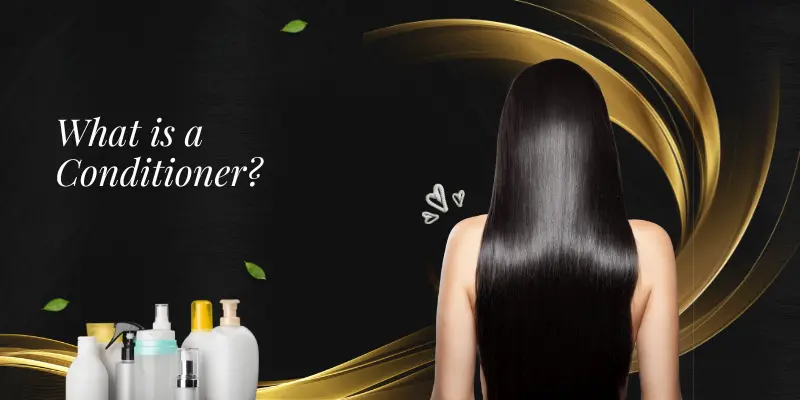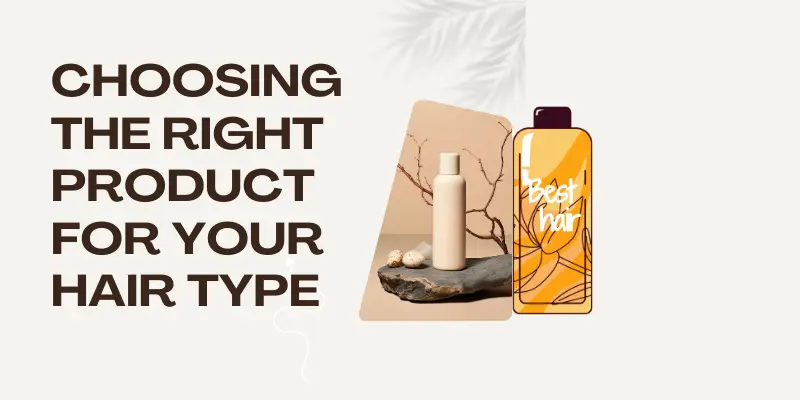Conditioner vs Hair Mask – The Surprising Truth: Which One Truly Transforms Your Hair?
Published: 11 Nov 2024
Conditioner vs Hair Mask – which one truly transforms your hair? Both play a key role in giving you soft, shiny, and healthy strands, but they serve different purposes. While some people swear by a quick conditioner, others rely on the deep repair of a hair mask. So, how do you choose? In this guide, we’ll reveal the real differences, when to use each, and which option works best for your hair type-whether it’s dry, oily, curly, damaged, or color-treated. Let’s help you find your perfect match for lasting hair health.
What is a Conditioner?
A conditioner is a lightweight, moisturizing product used after shampoo.

It smooths, softens, and detangles your hair. It also adds a protective layer that locks in moisture and reduces frizz—an essential step highlighted in any effective Hair Detangling Guide.
How Conditioner Works
Conditioners coat the hair cuticle with a thin protective film. This reduces friction, frizz, and static, making the hair easier to manage.
When to Use It
Conditioner is used after every wash, either daily or every other day, depending on your hair type. It’s great for general maintenance.
Key Benefits
- Instantly hydrates hair
- Adds softness and shine
- Reduces frizz and static
- Makes styling easier
What is a Hair Mask?
A hair mask is a rich, deeply nourishing treatment designed to repair hair from the inside out. It’s packed with oils, vitamins, and strengthening ingredients found in protein hair masks.
How Hair Masks Work
Hair masks penetrate deep into the hair shaft, repairing damage and restoring strength and elasticity. Their thick consistency helps seal moisture in.
When to Use a Hair Mask
Use it 1–3 times a week, depending on your hair’s condition. Overuse on oily or fine hair may cause buildup.
Key Benefits
- Deeply hydrates and strengthens
- Repairs brittle and damaged hair
- Provides long-lasting results
- Improves shine and texture
Conditioner vs Hair Mask: Key Differences
| Feature | Conditioner | Hair Mask |
|---|---|---|
| Formula | Lightweight | Thick and rich |
| Purpose | Moisture and detangling | Deep repair and nourishment |
| Frequency | After every wash | 1–2 times per week |
| Time Required | 1–3 minutes | 5–20 minutes |
| Penetration | Surface-level | Deep inside the shaft |
Choosing the Right Product for Your Hair Type
Choosing the right product for your hair type ensures better results and healthier strands.
Fine hair needs lightweight formulas, while thick or curly hair benefits from richer, moisturizing options.

Always consider your hair’s texture, porosity, and scalp condition before picking a product.
Using the wrong product can weigh your hair down or cause dryness and buildup.
For Normal Hair
Use a regular conditioner daily. A hair mask is only needed once a month.
For Dry or Frizzy Hair
Use conditioner every wash and apply a moisturizing mask once a week. Look for ingredients like argan oil and shea butter.
For Colored or Severely Damaged Hair
Use conditioner after every wash and a protein-rich mask once a week. Choose masks with keratin or amino acids.
For Fine or Oily Hair
Use a lightweight conditioner daily. Apply a light or “weightless” hair mask once a month to avoid buildup.
For Curly or Textured Hair
Condition often and use a mask weekly. Look for masks with coconut oil, castor oil, and shea butter for better curl definition and frizz control.
Can You Use Both Together?
Yes! Using both can help if your hair is very dry or damaged.
How to Use Both
- Shampoo your hair to cleanse it.
- Apply the mask from mid-length to ends. Leave for 5–20 minutes.
- Rinse and use conditioner to lock in the mask’s benefits and smooth the cuticle.
Personal Stories
Sonia, 29 (Color-treated hair): “After years of dyeing my hair, it felt like straw. I started using a protein hair mask weekly with my regular conditioner, and my hair became soft, shiny, and manageable again.”
David, 35 (Curly hair): “My curls were always frizzy. A stylist told me to add a weekly castor oil mask and use conditioner after every wash. The difference was huge. My curls now pop without frizz.”
Conclusion
Dry Hair Masks are a simple, natural way to bring life back to dry, dull, or frizzy hair. Whether you mix a DIY blend or choose a ready-made mask, these treatments sink deep to add moisture, shine, and strength while calming frizz. For best results, apply to clean, damp hair, leave on 10–20 minutes, then rinse with cool water; use 1–2 times per week and pick ingredients that fit your hair’s needs.
When thinking about Conditioner vs Hair Mask, remember that conditioners are your everyday hair heroes—quick and effective—while hair masks are your weekly treatments for deeper repair. Knowing the difference helps you care for your hair better. Ideally, use both depending on your hair type and needs.
FAQs
Yes, you can replace conditioner with a hair mask occasionally, but not every day. Hair masks are more concentrated and provide deep repair, which can be too heavy if used daily. They’re best reserved for weekly treatments or when your hair feels especially dry or damaged. Regular conditioner, however, is designed for frequent use and keeps your hair balanced.
Yes, it’s a good idea to use conditioner after a mask because conditioner seals the cuticle. While a mask penetrates deeply to repair and nourish, the conditioner smooths the outer layer of the hair shaft. This helps lock in the benefits of the mask and prevents frizz. Doing both ensures softness, shine, and long-lasting hydration.
Yes, you can use both, but it should be done in the right order. Always start with the hair mask, since it penetrates deeply and needs time to work. After rinsing it out, follow with conditioner to seal everything in. This combination provides maximum nourishment, leaving your hair healthier and stronger.
Most hair masks are designed to be left on for 5–20 minutes. However, some intensive masks allow longer application depending on your hair’s condition. Leaving it too long may weigh your hair down, especially if it’s fine or oily. Always check the instructions on your product for the best results.
Yes, there are masks for every hair type, but the key is choosing the right one. For fine hair, a lightweight hydrating mask is best. For thick, curly, or damaged hair, richer masks with proteins and oils are more effective. Matching the mask to your hair ensures you don’t overload it with heavy ingredients.
Both play important roles in managing dry hair. Conditioner is for everyday moisture and helps detangle and soften your strands. A hair mask, on the other hand, works more deeply to repair dryness and restore nutrients. Ideally, you should use conditioner daily and a mask once a week for the healthiest results.
No, daily use of hair masks isn’t recommended because they are very rich in nutrients. Overusing them can weigh hair down and cause buildup, especially for fine or oily hair types. It’s best to limit usage to once or twice a week. This keeps your hair balanced and prevents product overload.
A deep conditioner focuses mainly on hydration, helping to restore softness and moisture to your hair. A hair mask does that too, but it usually goes further by repairing damage and strengthening the hair structure. Masks often contain proteins, oils, and vitamins that target deeper concerns. Both are helpful, but masks provide more intensive care.
The effects of a hair mask generally last longer than conditioner because masks penetrate more deeply. Conditioner gives instant smoothness and shine, but wears off after the next wash. A mask can provide long-lasting nourishment, making hair feel healthier for several days. That’s why it’s used less frequently but has a stronger effect.
Yes, fine hair can benefit from hair masks, but you need to be cautious. Choose lightweight, volumizing, or hydrating formulas rather than thick, heavy ones. Avoid applying too much product near the scalp to prevent greasiness. Using it once a week can keep fine hair nourished without weighing it down.

- Be Respectful
- Stay Relevant
- Stay Positive
- True Feedback
- Encourage Discussion
- Avoid Spamming
- No Fake News
- Don't Copy-Paste
- No Personal Attacks

- Be Respectful
- Stay Relevant
- Stay Positive
- True Feedback
- Encourage Discussion
- Avoid Spamming
- No Fake News
- Don't Copy-Paste
- No Personal Attacks





